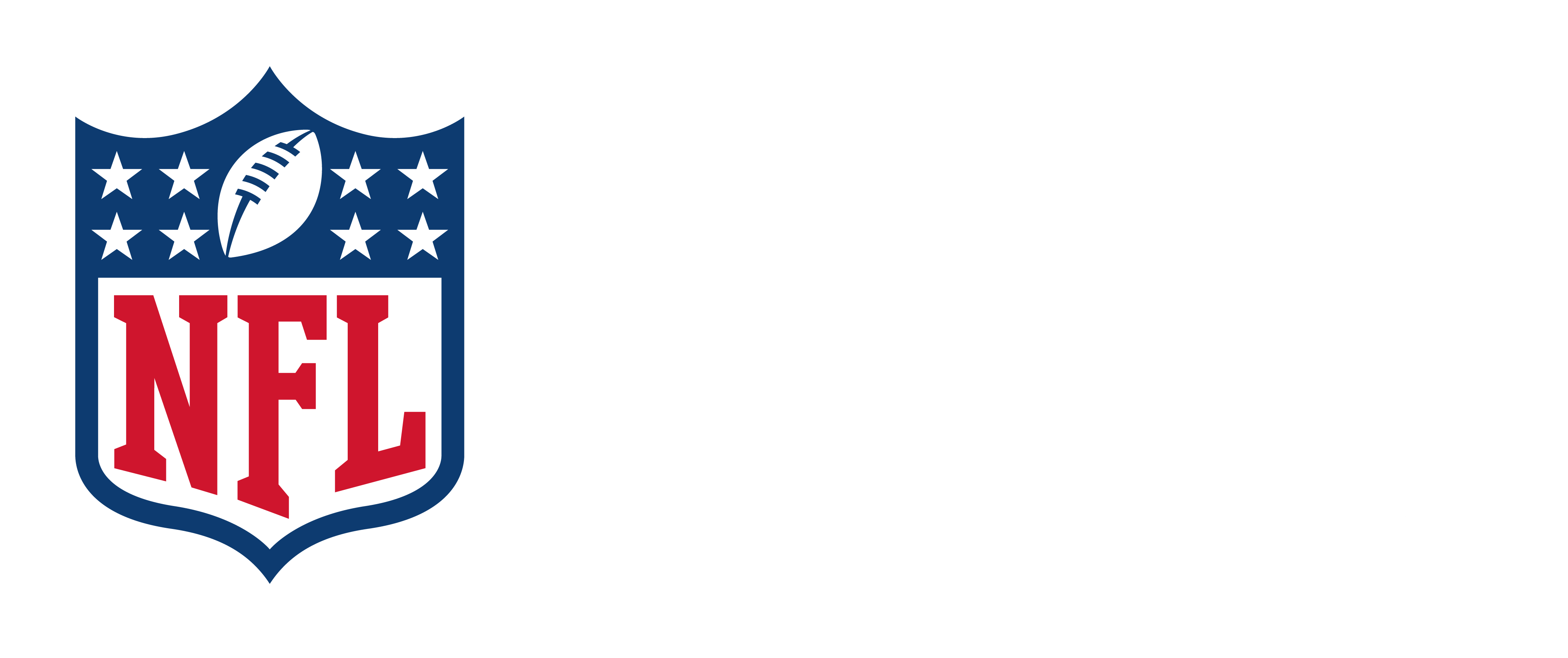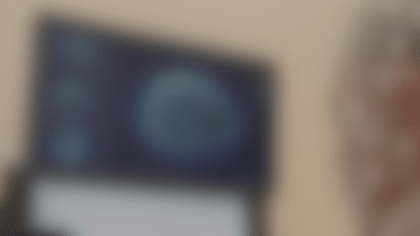Summary
The NFL has assembled a Scientific Advisory Board—leading independent experts, doctors, scientists and clinicians—to identify compelling research priorities to support with the NFL's $40 million commitment in funding for medical research over the next five years, primarily dedicated to neuroscience.
Leading Independent Experts
The NFL has assembled a Scientific Advisory Board to develop and lead a clear process to identify and support compelling proposals for scientific research.
These are independent experts, doctors, scientists and clinicians who are leading efforts to advance research into concussions, head injuries and their potential long-term effects.
The Scientific Advisory Board will develop a process for soliciting, reviewing and evaluating research proposals and directing funding. The board will leverage the expertise of the NFL's medical committee members, including members of the Head, Neck and Spine Committee, to identify and develop research priorities.
Science Will Lead the Way
The NFL wants science to lead the way in this effort.
"We know there is skepticism about our work in this area," NFL Commissioner Roger Goodell wrote in an open letter in September. "That's why both the process and the results of our work will be shared with the medical community and the public at large."
New Targets for New Research
That open letter from the Commissioner launched the NFL's Play Smart. Play Safe. initiative.
Part of that initiative is the NFL's commitment to invest in and partner with preeminent experts and institutions to advance progress in the prevention, diagnosis and treatment of head injuries.
The NFL has allotted $100 million for medical research and engineering advancements, including $40 million in funding for medical research over the next five years, primarily dedicated to neuroscience.
Members of the Board
These are the members of the new Scientific Advisory Board:
Peter Chiarelli, Gen. (Ret.)
Chairman
General Chiarelli, U.S. Army General (Retired), is Chief Executive Officer of One Mind, a brain illness related non-profit organization who works with members in the governmental, corporate, scientific and philanthropic communities to greatly accelerate large-scale research through "Open Science" data sharing and collaboration. One Mind's current focus is on a new approach to diagnose, treat and cure post-traumatic stress (PTS) and traumatic brain injury (TBI). He is a retired General with almost 40 years of experience. As the 32nd Vice Chief of Staff of the Army, he led the Department of Defense efforts on post-traumatic stress (PTS), traumatic brain injury (TBI), and suicide prevention. In this role, he was responsible for the day-to-day operations of the Army and its 1.1 million active and reserve soldiers, including the oversight of many of the Army's R&D programs, and the implementation of recommendations related to its behavioral health programs, specifically its Health Promotion, Risk Reduction and Suicide Prevention Program. In 2013, Chiarelli received the Patriot Award, the Congressional Medal of Honor Society's highest honor for his work to help soldiers and families suffering from the invisible wounds of war.
David Hovda, Ph.D.
Dr. Hovda is the Director of the UCLA Brain Injury Research Center. He is Past President of the National Neurotrauma and International Neurotrauma Societies. He has served as Chair of study sections for the National Institute for Neurological Disease and Stroke (NINDS). He has received a number of awards for his research on brain injury and recovery of function, including the 1991 National Head Injury Foundation Award, the Giannini Foundation Award, the Benjamin Franklin Haught Memorial Award, the 2008 Deborah L. Warden Lectureship Award and named the Lind Lawrence Eminent Scholar for his work on the topic of Traumatic Brain Injury. In 2011, the Secretary of the Army presented Dr. Hovda the "Strength of the Nation Award", the highest award given to a civilian from the United States Army, in recognition of Dr. Hovda's efforts to help military personnel suffering from mild traumatic brain injury returning from theater. Dr. Hovda is internationally known for his translational work on the pathobiology of traumatic brain injury and has devoted most of his career to understanding the mechanisms of recovery of function.
Douglas H. Smith, M.D.
Dr. Smith serves as Director of the Center for Brain Injury and Repair and is the Robert A. Groff Endowed Professor and Vice Chairman for Research and Education in Neurosurgery at the Perelman School of Medicine, University of Pennsylvania. Dr. Smith is also the Scientific Director for the Big 10/ Ivy League consortium on concussion. For research awards, he is director of several multi-center National Institutes of Health (NIH) and Department of Defense grants on concussion and TBI-induced neurodegeneration, as well as for an NIH training grant on brain injury. His group has demonstrated that damage to the brain's network, called "diffuse axonal injury," is a fundamental mechanism of concussion. This has led to the development of diagnostic tools to identify concussed individuals who will have poor outcomes. In addition, his group has discovered mechanisms of concussion and more severe TBI that lead to progressive neurodegeneration, such as chronic traumatic encephalopathy. Recent scientific awards for these contributions include the Dorothy Russell Medal, the highest honor conveyed by the British Neuropathological Society.
David J. Shulkin, M.D.
Dr. David J. Shulkin served as the ninth Secretary of Veterans Affairs (VA) from February 2017 to March 2018. Prior to his confirmation as Secretary, Dr. Shulkin served as VA's Under Secretary for Health for 18 months, leading the Nation's largest integrated health care system, with over 1,700 sites of care serving nearly nine million Veterans. Before he began his service with VA, Dr. Shulkin held numerous chief executive roles at Morristown Medical Center, and the Atlantic Health System Accountable Care Organization. He also served as President and CEO of Beth Israel Medical Center in New York City. Dr. Shulkin has held numerous physician leadership roles including Chief Medical Officer of the University of Pennsylvania Health System, Temple University Hospital, and the Medical College of Pennsylvania Hospital. He has also held academic positions including Chairman of Medicine and Vice Dean at Drexel University School of Medicine. As an entrepreneur, Dr. Shulkin founded and served as Chairman and CEO of DoctorQuality, one of the first consumer-oriented sources of information on quality and safety in healthcare. A board-certified internist, Dr. Shulkin is also a fellow of the American College of Physicians. He received his medical degree from the Medical College of Pennsylvania, and he completed his internship at Yale University School of Medicine and a residency and fellowship in General Medicine at the University of Pittsburgh Presbyterian Medical Center. He also received advanced training in outcomes research and economics as a Robert Wood Johnson Foundation Clinical Scholar at the University of Pennsylvania. Dr. Shulkin has been named as one of the "50 Most Influential Physician Executives in the Country" by Modern Healthcare. He has also previously been named among the "One Hundred Most Influential People in American Healthcare." He has been married to his wife, Dr. Merle Bari, for 29 years. They are the parents of two grown children.
Sidney Hinds, M.D., M.C., Col.
Colonel Hinds is a Brain Health Research Program Coordinator at the Department of Defense, where he coordinates neurological and psychological protection, prevention, evaluation, diagnosis, treatment, and rehabilitation research as it pertains to blast injury. He previously served as the national director of the Defense and Veterans Brain Injury Center (DVBIC), which serves active duty military and veterans with traumatic brain injury through state-of-the-art medical care and care coordination, and innovative clinical research and educational programs. Before that, he was the deputy director of the Armed Forces Radiobiology Research Institute for Military Medical Operations, the theater neurologist in Afghanistan, and chief of Nuclear Medicine Services at Walter Reed National Military Medical Center. While deployed to Afghanistan from February to July 2012, he oversaw standardization of care at 11 concussion care centers as the theater neurology consultant.
Shelly D. Timmons, M.D., Ph.D.
Dr. Timmons serves as Director of Neurotrauma, Vice Chair for the Administration Department of Neurosurgery, and Professor of Neurosurgery at Penn State Health Milton S. Hershey Medical Center. She has been a clinical researcher for a number of years, and has participated as principal investigator in numerous clinical trials related to traumatic brain injury. She has published and lectured on a variety of topics related to traumatic brain injury, neurocritical care, spinal cord injury, blunt vascular injury, and health care delivery throughout her career. She has held a variety of professional organizational positions, including Director-at-Large for the American Association of Neurological Surgeons (AANS) Board of Directors, Chair of the Section on Neurotrauma and Neurocritical Care of the AANS and Congress of Neurological Surgeons (CNS), Governor and Chair of the Neurosurgery Advisory Council of the American College of Surgeons, and Scientific Counsellor for the Centers for Disease Control Center for Injury Control and Prevention.











